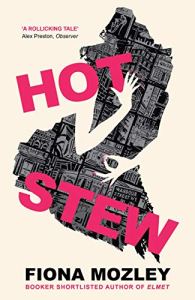May 9, 2021 · 11:47 p.m.
The title of the book A Short History of London: The Creation of a World Capital by Simon Jenkins it gives the reader a direct warning that there is inevitably much left in the 400-year history of the city in its 400 pages. He pays close attention to the architecture and planning of the town center in the last century, and with it a little about his government. As a lifelong Londoner, Jenkins is passionate about his hometown. It has undergone significant changes throughout its life and does not hold back from correct opinions about recent developments. Having already created a brief history of Europe and England, well-trained Jenkins is deliberately the most important aspect of writing a short book, which is that he writes rhythmically and is very good at briefly conveying the general extent of events in easily digestible chapters.

 Square Haunting: Five Women, Freedom and London Between the Wars by Francesca Wade It is a group biography of five modernist women who lived in Mecklenburgh Square in Bloomsbury between 1916 and 1940. The modernist HD poet lived at No. 44 at the end of World War I for two years, and detective novelist Dorothy L. Sayers stayed at the same address for more than a year in 1921, when they were both early writers. In contrast, classicist scholar Jane Harrison spent the last two years of her life at No. 11, where she died in 1928. Historian and presenter Eileen Power, a longtime resident of No. 20 from 1922 to 1940, and Virginia Woolf, a novelist, lived at No. 37 for just over a year at the start of World War II.
Square Haunting: Five Women, Freedom and London Between the Wars by Francesca Wade It is a group biography of five modernist women who lived in Mecklenburgh Square in Bloomsbury between 1916 and 1940. The modernist HD poet lived at No. 44 at the end of World War I for two years, and detective novelist Dorothy L. Sayers stayed at the same address for more than a year in 1921, when they were both early writers. In contrast, classicist scholar Jane Harrison spent the last two years of her life at No. 11, where she died in 1928. Historian and presenter Eileen Power, a longtime resident of No. 20 from 1922 to 1940, and Virginia Woolf, a novelist, lived at No. 37 for just over a year at the start of World War II.
This is a very impressive non-fiction premiere. Although not all women knew each other or lived in Mecklenburgh Square at the same time, Wade shows how the time they lived played a key role in each of these women’s lives and how important it is to have their own space to work and grow. “One’s room” was essential to fulfilling their potential. The chapters that define the lives of HD, Sayers, and Woolf are particularly powerful, though that probably reflects my preference for academic biographies over literary ones. ‘Square Haunting’ was nominated for last year’s Baillie Gifford Prize for Non-Fiction and was recently nominated for the RSL Ondjaate Prize, which is “reminiscent of the spirit of a place to a fictional, non-fiction or poetry work awarded annually”. ”. Fortunately, this book definitely meets the criteria for this award.
Filed under Books






